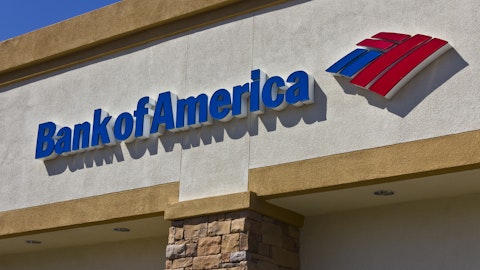Let’s say a hedge fund manager can generate 10% alpha with $1 billion in assets. This fund will generate $20 million in management fees, and another $20 million in performance fees. Now, other investors notice that this hedge fund generates 6% net alpha (remember 4 percentage points is kept by the hedge fund as fees) and want to give it money thinking that it can keep generating better than average risk-adjusted returns. So, let’s say this hedge fund receives an additional $9 billion that it invests in large-cap stocks where it doesn’t generate any excess returns. Now, with $10 billion in AUM the fund still generates $100 million in alpha. Unfortunately for its investors, it will collect $200 million in management fees and another $20 million in performance fees. So, its net alpha (after fees) will go down to -1.2%.
The fund manager collects $40 million in fees in the first situation, vs. $220 million in the second situation. It usually takes fund investors at least a few years to notice that they are being fleeced (remember it took Julian Robertson more than 10 years to prove himself, these things take time). Especially in bull markets where hedge funds continue to deliver positive returns, it takes investors longer to notice that hedge funds on average stop delivering positive alpha. If we assume that it will take investors 5 years to notice the decline in alpha, the fund manager would have collected more than a billion dollars in fees. This would have taken him 25 years if he continued to operate honestly and charged only $40 million/year.
So, the biggest problem in the hedge fund industry is pretty simple. There is way too much demand for hedge fund managers. They shouldn’t be managing $3 trillion. They should be managing less than $1 trillion (maybe $500 billion) so that they keep generating positive alpha.
The second biggest problem in the hedge fund industry is that the biggest hedge fund investors are unsophisticated retirement and pension funds that are managed by unqualified people. These pension fund managers tend to invest in larger hedge funds whose real purpose has shifted into harvesting management fees. These people know that they won’t lose their jobs because they decided to invest in Pershing Square or Paulson & Co. These people behave like herds of sheep.
These days we are finally going through a slow moving phase where public opinion is turning against hedge funds and active investing in general. More and more people are starting to believe that they will be better off if they invest in index funds.
Our research has been showing that this is for the most part true when it comes to investing in large-cap stocks. Hedge fund managers, on average, can’t generate enough outperformance to justify their 2-and-20 fee structure. However, their smaller-cap stock picks are still doing extremely well. For example, we publish a quarterly newsletter and share the list of the consensus small- and mid-cap stock picks of the 100 best performing hedge funds. We launched this strategy almost 3 years ago and its stock picks have outperformed the S&P 500 Index ETF (SPY) by nearly 20 percentage points during this period. Passive investors returned 30% vs. the consensus small- and mid-cap stock picks of hedge funds returning 50%. Most people aren’t aware of this fact because most hedge funds allocate only a small percentage of their portfolios to small- and mid-cap stocks. Currently we are offering a 14-day risk-free trial and you can download a copy of the latest issue of our quarterly newsletter by signing up here.
Directly investing in equity hedge funds isn’t an optimal strategy for investors. You don’t need to pay 2-and-20 to hedge funds so that they go ahead and buy Alphabet Inc (NASDAQ:GOOGL), Facebook Inc (NASDAQ:FB), and Bank of America Corp (NYSE:BAC). There are exceptions, but a more optimal investing approach is to use index funds for the large-cap portion of your portfolio and imitate hedge funds’ consensus small- and mid-cap stock picks in the small-cap portion of your portfolio. Hedge funds reveal their portfolios once a quarter, so it really doesn’t make sense to pay them an arm and a leg so that they invest most of your money in large-cap stocks and enrich themselves by charging mind numbing fees.
Disclosure: None




